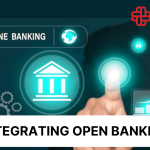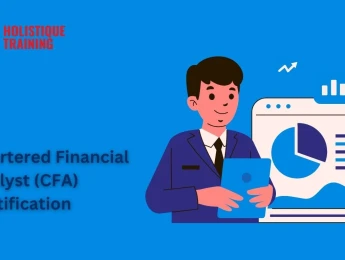Due to rising concerns about climate change and permanent environmental damage, there has been a large shift in market demands and industry standards. Sustainable practices are greatly sought, and many consumers choose to only interact with sustainable organisations. Banking is an industry that has remained relatively unchanged; however, the increased demand for sustainable practices cannot be ignored.
For sustainable banking to be successful, there needs to be a strong evaluation of the environmental, social and governance criteria. Utilising this knowledge, banking organisations will have to use innovative methods to plan and implement realistic, sustainable practices. The goal of sustainability should be to reduce costs, reduce environmental damage and maintain fair prices while also maintaining a profit.
Traditional capital marketing methods only consider two factors: risk and return analysis. However, sustainable banking relies on three dimensions: risk, return and impacts. With the added considerations, effective risk management is more crucial than ever. Managing risks throughout the planning, implementation, and post-implementation is key in ensuring customer finances are protected and the organisation is able to safely remain sustainable.
Upon completion of this course, participants will be able to:
- Understand the vitality of sustainable banking practices.
- Assess the concepts, principles and aims of sustainable banking.
- Analyse key environmental, social and governance (ESG) issues.
- Evaluate the impact of sustainable practices on business and finance strategy.
- Develop effective methods to transition current practices to sustainable practices.
- Describe the advantages and disadvantages of sustainable banking methods.
- Conduct risk assessments and establish risk management plans to minimise customer, organisational and environmental risks.
- Build financial models in alignment to manage risks identified through risk assessments.
- Examine ways of maximising profits while prioritising sustainability.
This course is designed for anyone within an organisation responsible for banking methodology, particularly those interested in sustainable practices. It would be most beneficial for:
- Banking Managers
- Financial Advisors
- Risk Analysts
- Finance and Budget Managers
- Operations Managers
- Project Managers
- Strategy and Development Supervisors
This course uses a variety of adult learning styles to aid full understanding and comprehension. Participants will review real-world case studies of banking organisations that have transitioned to sustainable practices to highlight key influences and challenges faced.
Participants will participate in a variety of learning activities, including presentations, group discussions, video material, and role-playing scenarios. This will ensure they have ample opportunity to develop their knowledge and skills related to the taught content. They will be supplied with all the necessary tools to participate efficiently in these.
Day 5 of each course is reserved for a Q&A session, which may occur off-site. For 10-day courses, this also applies to day 10
Section 1: Introduction to Sustainable Banking
- Defining what sustainable banking is.
- The concepts and principles of sustainable banking.
- How traditional banking practices have negatively impacted environmental and social factors.
- Common products and services offered through sustainable banking.
- Integrating traditional practices with sustainable practices.
- Assessing the sustainable bonds market and how it can benefit an organisation.
Section 2: Committing to Sustainability
- Reevaluating business goals and objectives to align with sustainability.
- Creating and adjusting action plans to detail sustainability goals, aims and objectives.
- Establishing a strategy for sustainability.
- Publish environmental, social and governance metrics.
- Train and motivate employees on sustainability principles and offer rewards and incentives for outstanding work.
- Methods of fostering innovation.
Section 3: Governance in Sustainable Banking
- Defining what corporate governance is.
- The principles and practices of corporate governance.
- Ensure adequate information disclosure.
- Prioritising fair and inclusive prices for customers and collaborators.
- Establishing a channel for accepting and managing complaints.
- Developing responsibility guidelines.
Section 4: Implementing Risk Management
- Understanding the vitality of effective risk management within an organisation.
- Methods of identifying and measuring risks.
- Carrying out risk assessments and creating risk management plans.
- Implement risk preventative measures and create solutions for when a potential risk occurs.
- Accepting responsibility for indirect impacts and the sphere of influence.
Section 5: Sustainable Banking in Practice
- How sustainable practices can improve organisation reputation and brand value.
- Improving an organisation's energy efficiency.
- Reducing costs and ensuring financial inclusion.
- Adhering to sustainability regulatory requirements.
Upon successful completion of this training course, delegates will be awarded a Holistique Training Certificate of Completion. For those who attend and complete the online training course, a Holistique Training e-Certificate will be provided.
Holistique Training Certificates are accredited by the British Assessment Council (BAC) and The CPD Certification Service (CPD), and are certified under ISO 9001, ISO 21001, and ISO 29993 standards.
CPD credits for this course are granted by our Certificates and will be reflected on the Holistique Training Certificate of Completion. In accordance with the standards of The CPD Certification Service, one CPD credit is awarded per hour of course attendance. A maximum of 50 CPD credits can be claimed for any single course we currently offer.
- Course Code IND12-110
- Course Format Online, Classroom,
- Duration 5 days














